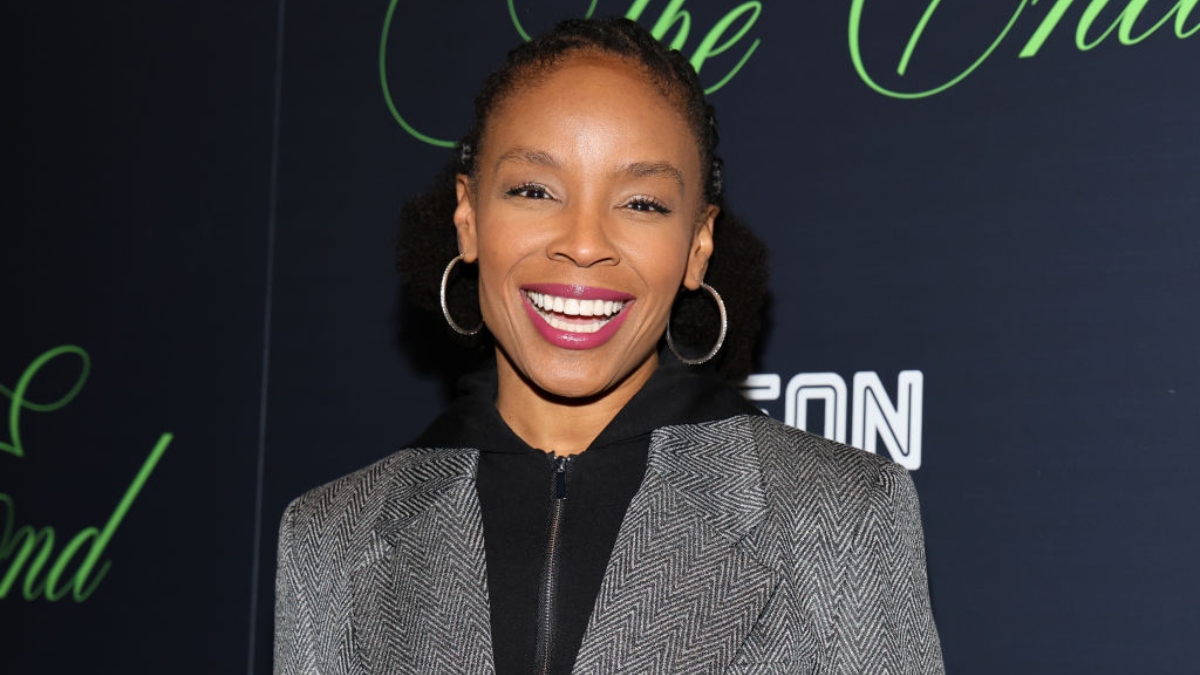Why Was Amber Ruffin Pulled from WH Correspondents Dinner?
At the intersection of comedy and politics, the White House Correspondents' Association's decision to cancel Amber Ruffin's performance raises questions about the delicate balance in today's media landscape.
Published March 30, 2025 - 00:03am

Image recovered from thewrap.com
The White House Correspondents' Dinner, a long-standing Washington tradition, has once again become a focal point of political and cultural debate. The recently announced decision to cancel comedian Amber Ruffin from headlining the upcoming dinner on April 26 has sparked discussions on free press, political division, and the role of comedy in political discourse.
According to Eugene Daniels, President of the White House Correspondents' Association (WHCA), the move to forego a comedic performance this year was made unanimously by the WHCA board. The decision underscores a shift in focus from the politics of division to celebrating outstanding journalistic work and supporting the next generation of media professionals through scholarships and mentorship. Daniels emphasized the importance of maintaining a robust independent media and highlighted the ongoing challenges faced by journalists in the current political climate.
Traditionally, the White House Correspondents' Dinner has featured comedians who deliver roast-style performances targeting politicians and journalists alike. Figures such as Bob Hope, Wanda Sykes, and Trevor Noah have graced the stage in previous years. However, Ruffin's edgy comedic style and past critiques of former President Donald Trump and the Republican establishment may have contributed to the backlash and eventual cancellation.
Amber Ruffin, an Emmy-nominated writer known for her work on 'Late Night with Seth Meyers,' has been vocal about her disapproval of the MAGA movement. Her comments on a podcast, where she referred to Trump administration figures as akin to 'murderers,' drew sharp reactions from conservative circles and Trump allies. Taylor Budowich, White House Deputy Chief of Staff, criticized the choice of Ruffin as a headline performer, labeling her a 'second-rate comedian' and questioning the sensibility of such decisions for a prestigious event like the WHCA dinner.
The decision by the WHCA comes amidst a tense relationship with the Trump White House, which has historically criticized the press and taken unprecedented steps to limit journalists' independence and access to White House events. President Trump, who never attended the dinner during his time in office, has consistently voiced his disdain for the event and its comedic roasting of politicians.
As the WHCA restructures its dinner format this year, questions arise about the evolving role of comedy in political journalism. The association aims to rekindle the tradition of honoring press freedom while navigating the complexities of modern political discourse. While some view the removal of comedy as a step toward unity, others express concern over the potential stifling of critical voices in a democracy.
The WHCA dinner, founded in 1921, is historically significant as a gathering of journalists, political figures, and entertainers. This year, the absence of a comedic headliner may mark a new chapter in the event's legacy, reflecting changing dynamics in American politics and media.
Ruffin has yet to publicly comment on her removal from the event, though she previously stated her refusal to cater her jokes to appease both sides of the political spectrum. Her stance highlights the broader conversation about balancing humor, truth, and the potential impact of comedy on political perceptions.
As the WHCA plans to proceed without a performer, it will focus on honoring journalistic excellence and the vital role of a free press in American society. Whether President Joe Biden or his administration members will attend remains uncertain, but the event continues to symbolize a commitment to press freedom amid an ever-evolving political environment.







